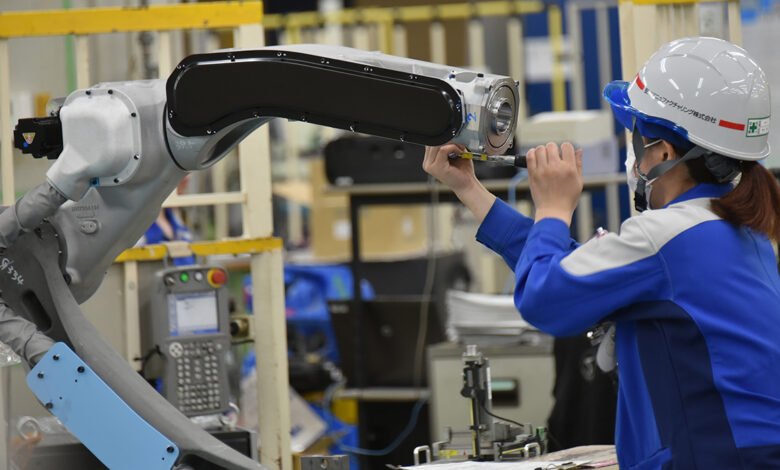Automation: Transforming the Future of Work and Industry

In today’s fast-evolving world, automation is revolutionizing the way businesses operate and how industries function. From assembly lines to customer service, automation technologies are reshaping workflows, boosting productivity, and redefining the future of work. This article dives deep into what automation is, the technologies behind it, its benefits, challenges, and the exciting future trends that will continue to transform industries worldwide.
What is Automation?
Automation refers to the use of technology to perform tasks with minimal human intervention. It encompasses a wide range of processes, from mechanical systems operating machines on factory floors to software automating repetitive office tasks.
Historically, automation has roots dating back to the Industrial Revolution when machinery replaced manual labor in manufacturing. Over the decades, automation has evolved from simple mechanical tools to sophisticated digital systems driven by artificial intelligence and robotics.
Today, automation can be broadly categorized into industrial automation—focused on manufacturing and physical processes—and software automation, which streamlines business operations such as data entry, customer support, and more.
Key Technologies Driving Automation
Several breakthrough technologies are the backbone of modern automation:
- Robotics and Artificial Intelligence (AI): Robots perform complex tasks ranging from assembling electronics to performing surgeries. AI enables machines to learn and make decisions, vastly expanding automation capabilities.
- Machine Learning and Deep Learning: These subsets of AI allow systems to analyze vast data sets, recognize patterns, and improve over time without explicit programming.
- Internet of Things (IoT): Connected devices and sensors gather real-time data to optimize operations, predict maintenance, and enhance automation accuracy.
- Robotic Process Automation (RPA): Software bots handle routine business tasks like invoice processing, freeing human workers for higher-value roles.
- Cloud and Edge Computing: These technologies provide the infrastructure needed for data storage, processing, and real-time automation at scale.
See also: Smart Homes for Sale With Latest Tech Features
Benefits of Automation
Automation offers a myriad of advantages for businesses and society:
- Increased Efficiency and Productivity: Machines operate faster and longer than humans, accelerating production timelines.
- Cost Reduction: Automation minimizes labor costs and reduces errors that can lead to costly rework.
- Enhanced Accuracy and Quality: Automated systems ensure consistent quality, reducing defects.
- Safety Improvements: Dangerous or repetitive tasks can be assigned to machines, protecting human workers.
- Scalability and Flexibility: Automated systems can quickly adapt to changing production demands or business needs.
Automation in Different Industries
Automation is no longer confined to manufacturing—it is transforming many sectors:
- Manufacturing: Automated assembly lines and quality control systems are standard in factories.
- Healthcare: Automation assists in diagnostics, patient monitoring, and robotic surgeries.
- Finance: Banks use automation for fraud detection, customer onboarding, and compliance.
- Retail: Automated inventory management, self-checkout systems, and personalized marketing enhance customer experiences.
- Transportation: Autonomous vehicles and automated logistics systems improve efficiency and safety.
- Customer Service: Chatbots and virtual assistants provide 24/7 support with instant responses.
Challenges and Risks of Automation
While automation brings many benefits, it also poses challenges:
- Job Displacement: Automation can replace certain job roles, leading to workforce disruption.
- Security and Privacy: Automated systems can be vulnerable to cyberattacks, risking sensitive data.
- Implementation Costs: Initial investments in automation technology can be significant.
- Ethical Considerations: Decisions made by AI systems raise questions about fairness and accountability.
- System Failures: Overreliance on automated systems can cause major disruptions if failures occur.
Future Trends in Automation
The automation landscape continues to evolve rapidly:
- AI-Driven Automation: AI will enhance decision-making and enable more autonomous systems.
- Hyperautomation: Combining multiple technologies for end-to-end process automation.
- Autonomous Vehicles and Drones: Revolutionizing transportation and delivery services.
- Smart Cities: Automated traffic management, energy optimization, and public safety systems.
- Human-Robot Collaboration: Robots will work alongside humans, complementing rather than replacing them.
How to Implement Automation Successfully
To maximize automation benefits, organizations should:
- Identify Suitable Processes: Focus on repetitive, rule-based tasks ideal for automation.
- Manage Change Effectively: Train employees and address concerns to ensure smooth transitions.
- Select Appropriate Technologies: Choose tools that align with business goals and infrastructure.
- Measure ROI: Continuously assess performance and refine automation strategies.
Frequently Asked Questions about Automation
Q1: Will automation take away all jobs?
Automation will transform jobs rather than eliminate all of them. While some roles may disappear, new opportunities requiring different skills will emerge.
Q2: How does automation improve product quality?
By minimizing human errors and ensuring consistent process execution, automation enhances product quality.
Q3: Is automation expensive to implement?
Initial costs can be high, but long-term savings and productivity gains typically outweigh upfront investments.
Q4: Can small businesses benefit from automation?
Yes, even small businesses can automate tasks like invoicing, customer service, and marketing to save time and money.
Q5: What is robotic process automation (RPA)?
RPA uses software bots to automate repetitive digital tasks such as data entry and transaction processing.
Q6: How do companies address ethical concerns in automation?
By establishing transparent AI policies, monitoring system decisions, and involving diverse stakeholders in design.
Conclusion
Automation is undeniably a powerful force shaping the future of work and industry. Its ability to boost efficiency, improve quality, and enhance safety makes it indispensable across many sectors. However, balancing automation’s benefits with ethical and social considerations is crucial for sustainable progress. As technology advances, automation will continue to unlock new possibilities, enabling businesses and societies to thrive in an increasingly automated world.




